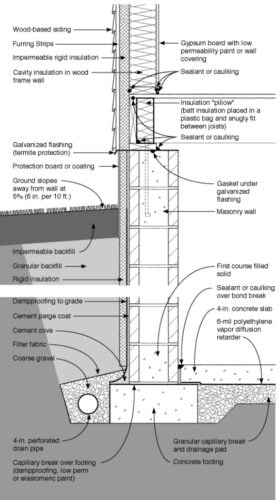The English word ‘WORK’ is the single most important word in the design and construction business. Let’s explore why.
In an earlier mini-lesson, we talked about the word ‘WORK’ as a verb. In this mini-lesson, we will learn a little bit about the word ‘WORK’ used as a noun on projects.
Work Collocations
Work is a legal term used in contract documents. It’s also used to describe many different specific parts of a construction project.
Here are some common VERBS that are used with the noun work. These are strong collocations. That means that these combinations are very common and useful.
They collocate like this: ‘VERB ‘+ WORK.
1 . perform work
2 . coordinate work
3 . begin work
4 . complete work
5 . include work
6 . exclude work
7 . schedule work
8 . install work
Subcontractors performed the work on schedule.
A tower crane helps the contractor do their work more efficiently.
The subcontractors must coordinate their work to avoid conflicts.
After receiving a notice to proceed from the owner, the contractor began work.
The general contractor must complete their work on budget.
The contract documents include storm sewer work in the street.
The contractor’s bid excludes work performed by the owner.
The project manager scheduled the foundation workfor next week.
The plumbing sub installed their work before the electrical sub.
Scope of Work
Different people perform different work on a construction project.
This separate piece of work is called a scope of work.
SCOPE
from modern Latin -scopium, from Greek skopein ‘look at’.
Scope means to “see” or “look at.” In construction, the meaning is similar.
Something can be inside or outside a scope of work; or is something you can see or cannot see in a contract document.

Defining Scope
Contract documents define the scope of work for everyone on the project.
The scope of work is the specific part(s) of a project that firms need to work on, or what they are responsible for. Contracts include some work (inside the scope of work) and exclude other work (outside the scope of work).
The word ‘work’ is often used together with other words to generally discuss the different scopes of work on a project. These are noun-noun collocations.
Work can be defined according to trade, discipline or specialty:
Electrical work
Utility work
Mechanical work
Demolition work
Civil work
MEP work
Structural work

Work can be generally discussed according to material:
Concrete work
Wood work
Sheet metal work
Masonry work

Another way to categorize work is by location:
interior work
underground work
exterior work
site work

And the word ‘work’ can be an adjective.
It can modify another noun when placed before it, making it more specific. Here are some expressions that are used to describe a project process.
Work progress
Work load
Work flow
Work day
Work hours

POWER VERBS
Here are the other important VERBS and VERB PHRASES that combine with the ‘work’ expressions above.
- be responsible for
- include
- exclude
- specify
- perform
- coordinate
- begin
- complete
- include
- exclude
- schedule
- install
+ WORK

Test your knowledge
Multiple choice
Read the questions and answer options below.
Think carefully about the best answer. Some answers might be grammatically correct, but there’s ONE BEST answer, according to the meaning of the expressions.
Finally, click the bar for correct answers and short explanation.
1. The owner made a change. The contractor needs to provide more concrete and steel.
These materials are ________________ the scope of work.
A. performed
B. inside
C. outside
D. complete
E. install
C. outside
Additional materials or work that isn’t in the contract is outside the scope of work in the contract.
2. Contract documents (drawings and specifications) ________________ the scope of work of a project.
A. coordinate
B. schedule
C. install
D. define
E. provide
D. define
The scope of work is defined by the contract documents. Define means to make clear or establish.
3. Plumbing and piping is usually ________________ from an electrical contractor’s scope of work.
A. performed
B. inside
C. outside
D. excluded
E. installed
D. excluded
Excluded from = omitted or not included in. Electricians don’t perform plumbing work. Outside might be correct if it read “Outside of __.” However, “outside from” is not a correct collocation.
4. If a consultant or contractor is responsible for something, it means that it is ____________ their scope of work.
A. inside
B. within
C. included in
D. part of
E. all of the above
E. all of the above
inside, within, included in, part of are all expressions that mean ‘inside’ and are used when defining a scope of work.
5. Which verb does NOT collocate with work?
A. perform
B. run
C. define
D. install
E. exclude
B. run
Run work doesn’t collocate well with ‘work’ as a noun. Managers can run projects or run meetings. In this case, run means to manage or execute.
6. Schedule is a noun. Contractors make a schedule. Schedule is also a verb. To schedule something most closely means:
A. write a calendar for a project
B. perform a scope of work
C. define a scope of work
D. set a specific time to perform work
E. coordinate the specific scopes of work
D. set a specific time to perform work
To schedule something means to put it on the calendar. Contractors schedule concrete pours or deliveries of materials. Managers schedule meetings.
7. The subcontractors and consultants have different scopes of work. It’s important that they ________________ their work to ensure the project is completed successfully.
A. coordinate
B. schedule
C. install
D. define
E. provide
A. coordinate
Work between consultants and subcontractors must be coordinated. Coordination is necessary to ensure there are no conflicts that will affect (change) other’s work.

LANGUAGE DEEP DIVE
Understanding “Work” as a Noun in Construction English
Why “Work” Is Central to Construction Communication
The noun “work” appears throughout construction documentation—from contract language to project specifications to site coordination. Understanding how construction professionals use “work” as a countable versus uncountable noun, how it combines with specific verbs and adjectives, and what it means in different project contexts is essential for clear communication in architecture, engineering, and construction management.
Unlike general English where “work” primarily means employment or effort, construction English uses “work” as a technical term describing specific activities, deliverables, scope boundaries, and quality standards. The word appears in critical contract terminology like “scope of work,” “defective work,” and “construction work”—each carrying precise meaning in project delivery and contract administration.
Work as Uncountable: The General Concept
Construction professionals most commonly use “work” as an uncountable noun (no plural form, no article “a/an”) when referring to construction activities, project scope, or labor in general terms. This usage appears throughout contract documents, specifications, and project coordination:
“All contractors must perform work in accordance with approved drawings.”
“The contractor shall complete work before the scheduled deadline.”
“Quality inspectors will inspect work at key milestones.”
When “work” functions as uncountable, it represents the collective activities, efforts, and deliverables on a construction project. You cannot count individual “works”—instead, you describe work using quantifiers like “all work,” “additional work,” “completed work,” or “ongoing work.”
Common Verb Collocations with Uncountable “Work”:
- Perform work: Execute construction activities according to specifications
- Complete work: Finish required construction activities
- Inspect work: Review construction activities for quality and compliance
- Accept work: Approve completed construction as meeting standards
- Reject work: Refuse to approve construction that doesn’t meet requirements
- Coordinate work: Organize construction activities between trades
- Schedule work: Plan timing and sequencing of construction activities
These verb-noun combinations appear constantly in contract management terminology, project specifications, and construction administration documents. Learning them as fixed phrases rather than individual words builds professional fluency.
Work as Countable: Specific Items or Artistic Creations
Construction English occasionally uses “work” as a countable noun (with plural “works”) in specific technical contexts. This usage appears less frequently but carries important meaning in certain situations:
1. Civil Engineering and Infrastructure:
“Public works” refers to infrastructure projects like roads, bridges, water systems, and utilities. This plural form is standard in civil engineering contexts:
“The Department of Public Works oversees infrastructure maintenance.”
“Earthworks include excavation, grading, and site preparation.”
2. Architectural Design (Formal/Academic):
Architects occasionally use “works” when discussing building designs as artistic or intellectual creations, particularly in academic or historical contexts:
“The architect’s works include several award-winning museums.”
“This building ranks among the firm’s most significant works.”
However, this usage is less common in everyday project communication. Construction professionals typically use “projects” or “buildings” instead of “works” when discussing completed designs.
Critical Contract Terms Using “Work”
Several essential contract terms use “work” as their foundation. Understanding these phrases is crucial for anyone involved in construction project management, contract administration, or construction coordination:
Scope of Work defines exactly what construction activities a contractor must perform under the contract. This term appears in every construction contract, establishing boundaries between what is included and what requires additional compensation:
“The scope of work includes all structural steel fabrication and installation.”
“Additional work outside the original scope requires a change order.”
Defective Work identifies construction that fails to meet contract requirements, specifications, or quality standards. This term triggers contractual obligations for correction and may affect payment and project schedules:
“The contractor must correct all defective work at no additional cost.”
“Quality inspectors identified defective work in the waterproofing installation.”
Construction Work distinguishes building activities from design services, permitting, or other project activities. Contracts often separate design phases from construction work to clarify responsibilities and payment schedules:
“Construction work begins after the owner issues the notice to proceed.”
“The contractor coordinates all construction work with the construction manager.”
Work in Different Document Types
In Contract Documents:
Contracts use “work” to define obligations, establish quality standards, and set payment conditions. The term appears in nearly every contract clause, from general conditions to technical specifications:
“The Contractor shall perform all Work in a workmanlike manner.”
“No Work shall proceed without approved shop drawings.”
“The Owner may suspend Work for reasonable cause.”
Notice contracts often capitalize “Work” to indicate it’s a defined term with specific meaning established in the contract definitions.
In Technical Specifications:
Specifications use “work” to describe required construction activities for specific trades or systems. Division-specific language combines “work” with trade terminology:
“Work includes furnishing and installing all steel reinforcement.”
“Coordinate work with other trades to avoid conflicts.”
“Work shall comply with all applicable building codes.”
In Project Correspondence:
Emails, meeting minutes, and RFIs use “work” when discussing activities, schedules, quality issues, or coordination between trades:
“When can you complete the structural steel work?”
“MEP work requires coordination with the architectural ceiling design.”
“Please inspect the completed work before we proceed with finishes.”
Understanding “Work” Versus “Works”
The relationship between “work” as a noun and “work” as a verb creates important distinctions in construction communication. As a verb, “work” describes actions, functions, or problem-solving. As a noun, “work” describes deliverables, activities, or scope.
Noun (what you deliver):
“The contractor completed all electrical work.” (activities and installations)
Verb (what you do):
“Electricians work on the lighting installation.” (performing activities)
Verb (how something functions):
“The HVAC system doesn’t work properly.” (not functioning)
Understanding these distinctions prevents confusion in technical communication and helps you interpret contract language, specifications, and project correspondence accurately.
Professional Communication Strategies
When using “work” as a noun in professional construction communication:
Be specific when possible. Instead of vague references to “the work,” identify exactly what work you mean:
Vague: “The work is behind schedule.”
Specific: “The structural steel work is two weeks behind the baseline schedule.”
Use standard collocations. Construction professionals expect certain verb-noun combinations. Using non-standard phrases can sound unprofessional or create confusion:
Non-standard: “Execute the work properly.”
Standard: “Perform the work in accordance with specifications.”
Match your language to the document type. Formal contract language requires precise, standard terminology. Informal coordination emails can use simpler phrasing:
Contract: “The Contractor shall complete all Work prior to the Date of Substantial Completion.”
Email: “Can you finish the electrical work by Friday?”
Further Study and Application
Understanding “work” as a noun connects to broader construction vocabulary patterns. The term appears throughout contract management collocations, combines with numerous construction management verbs, and relates to discussions of construction methods and materials.
To develop fluency with “work” terminology, study actual contract documents, technical specifications, and project correspondence. Notice which verbs precede “work,” which adjectives modify it, and which prepositional phrases follow it. These patterns repeat across projects and companies, forming the standard vocabulary of construction project delivery.
Practice using “work” terminology accurately in your own professional communication. When you write project emails, respond to RFIs, or draft technical reports, consciously choose appropriate verb-noun combinations like “perform work,” “complete work,” or “inspect work” rather than generic alternatives. This precision marks you as fluent in construction English rather than someone translating from general business language.
This vocabulary forms part of English for Specific Purposes (ESP) for the construction industry. Mastering how “work” functions as a noun—and how it differs from “work” as a verb—is essential for anyone working in construction project management, contract administration, quality control, or technical coordination where clear communication about scope, deliverables, and responsibilities prevents costly misunderstandings and project delays.




